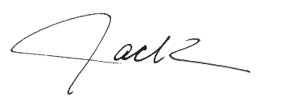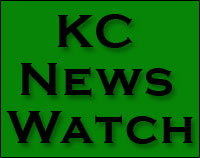Heartland Bankers Blast DC “Demagogues”

Find out what's REALLY happening in the news: The primary purpose of KC NewsWatch will be to watch the news and objectively correct it as needed through appropriate reporting and commentary. Particular emphasis will be on news print, radio and television media reaching areas surrounding the Kansas City Metro area.
|
Tune in for what's new in Kansas: It's a web-based news site, and regularly published journal, dedicated to limited government in the great state of Kansas. |
![]()
by Jack Cashill
Published in WorldNetDaily.com - August 12, 2010
For the last ten years in my role as executive editor of the Kansas City regional business magazine, Ingram’s, I have been moderating what we call the “Industry Outlook.”
Each month we gather about twenty or so of the regional leaders in a given industry around a table and encourage them to have at it for two hours. In those ten years, I have moderated no fewer than 100 such sessions across at least 20 different industry subsets.
But never before have I heard such uniform disgust at the political powers that be than I heard at this past month’s roundtable. Stranger still, the outrage swelled from what is usually the most temperate and restrained of our subsets, bankers.
The immediate target of their wrath was the preposterously named Dodd-Frank Wall Street Reform and Consumer Protection Act, a bill that will clearly not reform Wall Street or protect consumers.
“Indeed, it seems downright Orwellian to be “reformed” by “The Senator from AIG”. . . ”
When asked whether the bill addressed the “too-big-to-fail” problem, one Topeka banker at our meeting cut right to the chase, “The short answer is ‘no,’” he said bluntly. As he observed, none of the parties responsible for the financial mess-- the big banks, Freddie Mac and Fannie Mae, or the mortgage brokers--are affected by this.
The bill will, however, have a significant negative impact on a class of businesses that were not responsible for the problem that the act is alleged to be solving, regional and community banks.
Already regulated to near death, the banks will now have a new super-regulator, the Bureau of Consumer Financial Protection, which has already been shorthanded to the acronym BCFP, a cruel psychological blow to the Brocade Certified Fabric Professional s of the world.
The BCFP will operate within the Federal Reserve and with a very substantial budget. It will have the authority to adopt consumer protection regulations that are applicable to all banks and covered entities and will have the power to examine large banks.
“The banks are angry,” confirmed a Kansas City banker, “because I don’t think anyone in this room made subprime loans, and those people that did are out of business.”
In fact, bankers like those present had far less to do with the subprime morass that led to the larger Wall Street meltdown than did the authors of the act, Representative Barney Frank and Senator Chris Dodd.
Indeed, it seems downright Orwellian to be “reformed” by “The Senator from AIG” and a clown who as late as June 2005 was demanding that Congress “ continue to push for homeownership.” Said Frank at the time, “You are not going to see the collapse that you see when people talk about a bubble.”
In a bizarre bit of political theater, Frank came to Kansas City just a few months before the bill’s passage to honor Kansas City’s two largest banks, UMB and Commerce.
Forbes Magazine had named them respectively the number one and two “Best Banks” in the continental United States, an award based on their strength and stability.
In the award ceremony, Frank regretted that banks like UMB and Commerce were lumped together with banks that misbehaved and promised that his new legislation would separate the sheep from the goats.
According to the bankers at our Industry Outlook, Dodd-Frank did just that. The bill skinned the sheep and let the goats—Fannie, Freddie and Goldman Sachs among them—wander free.
In a letter last week to Federal Reserve chairman Ben Bernanke, Crosby Kemper Jr., chairman emeritus of UMB Financial Corporation, showed just how un-sheepish a Midwestern banker can be.
After 60 years in the business, suggested Kemper, he has a good idea about how Washington affects the prosperity of this country.
“I am simply stunned at the amount of class warfare and anti-business rhetoric generated by the Democratic Party in recent weeks,” he wrote. “In my judgment, this rhetoric is very counterproductive to creating new jobs and moving forward with the economy.”
Kemper went on to say that the enterprising people he has talked to are “doing all they can to protect their assets against what will be a drastically falling dollar due to the exorbitant spending by the bureaucrats in Washington.”
“The many I have spoken to are also very troubled by the increased regulation and taxation affecting their businesses,” Kemper continued. “I am enormously concerned, more than I have ever been, about the future of our country and the terrible divisiveness that has been created by the administration.”
After assailing the “demagogues” who hold forth in the nation’s capitol, Kemper expressed his hope that some decent leadership would emerge, but he added, “So far I have seen none, so all I can say is God help us all.”
The message coming out of Ingram’s Industry Outlook was just as ominous. When I asked why bankers nationwide had not done a better job of communicating their frustration about the impending legislation, an attorney in the room suggested that the biggest banks took or were force-fed a good deal of TARP money, “and they didn’t have any political clout when they had to pay it back.”
Optimists by profession, the bankers at the table professed to be looking for that silver lining. When prepping for the meeting, one banker had asked his colleagues, “Obviously, I’m missing something. Somebody’s got to benefit from this.”
But when he asked around, to a person, everyone answered, “We just can’t see it.”



